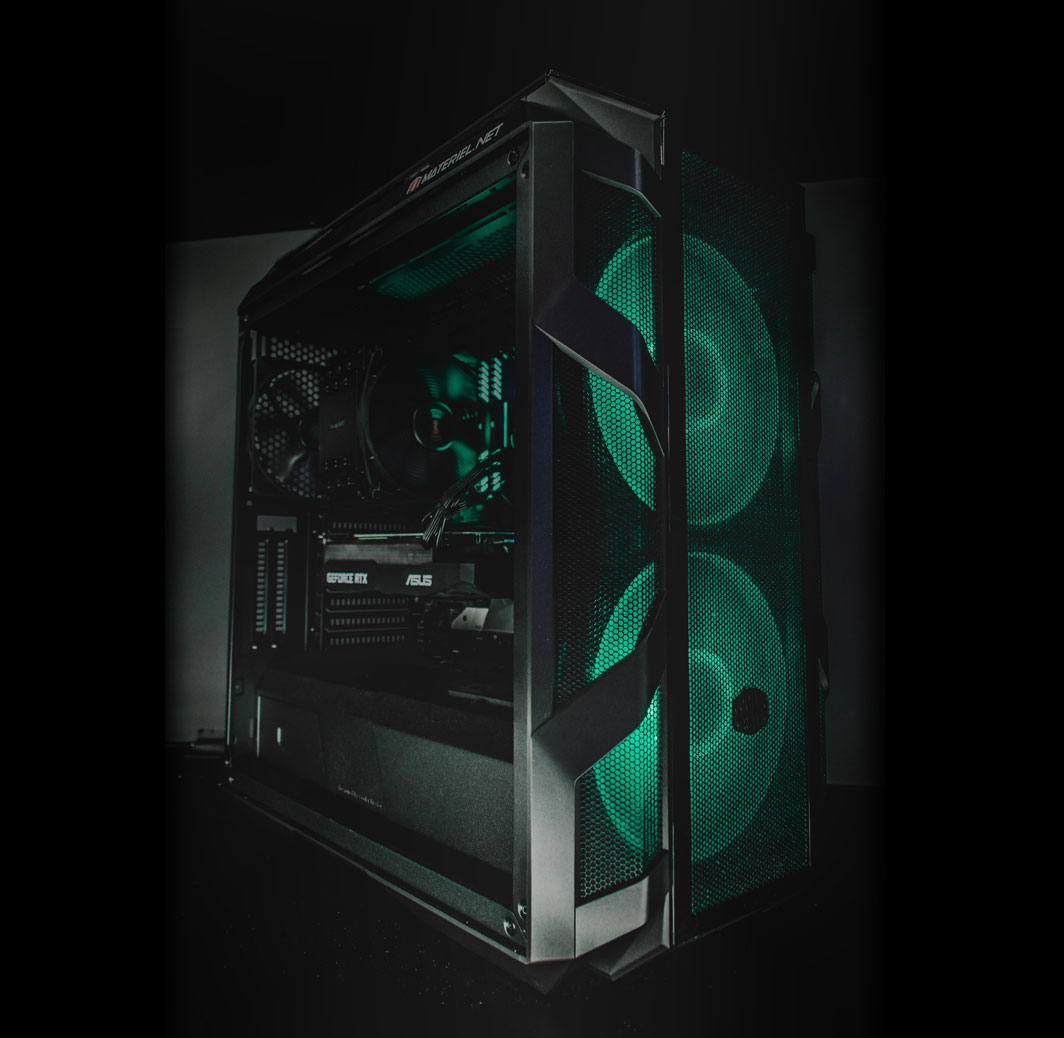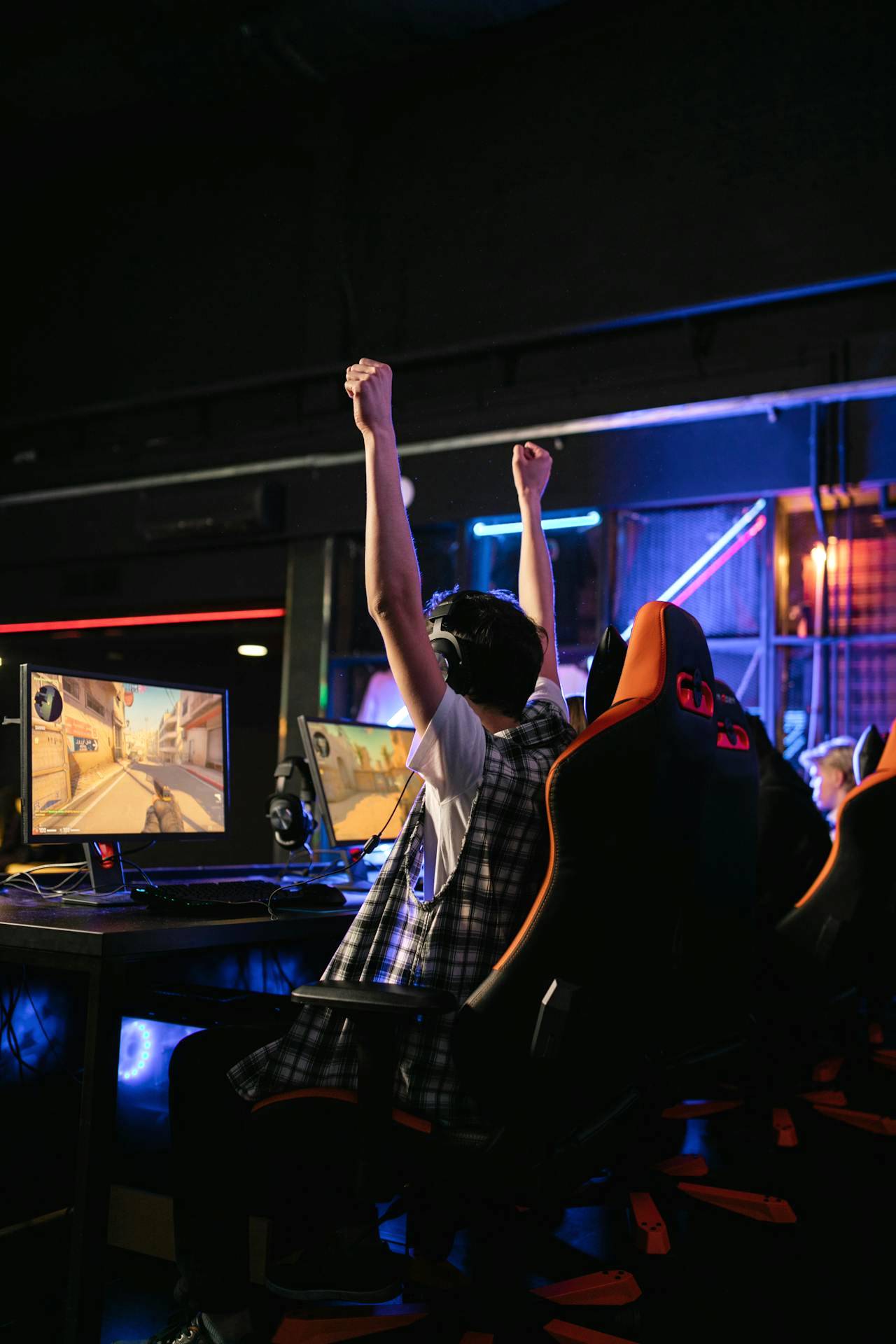
Save Hundreds
Cooler & Less Expensive than Buying a Pre-Built Gaming Computer
In addition to saving money you will get to build your PC to your exact specifications. You can build your own computer as long as you choose parts that are compatible. We've taken the guesswork out of the sample builds below.
LEARN MORELet’s Learn About the Components of a Gaming Computer
Building a gaming computer tailored specifically for emulators requires careful consideration of various components to ensure optimal performance and compatibility. From selecting the right operating system to choosing the appropriate hardware components and peripherals, each decision plays a crucial role in creating an immersive gaming experience. Let’s dive into the detailed process of building a gaming computer for emulators, covering every aspect from the operating system to peripherals and ambiance lighting.
1. Operating System:
The choice of operating system (OS) is fundamental as it dictates compatibility with emulators and gaming software. Here are the main options:
- Windows: Widely used and supported by most emulators and gaming software. Offers a large library of games and excellent driver support.
- Linux: Ideal for those who prefer open-source solutions. Some emulators have native Linux support, but compatibility can vary.
- macOS: Limited gaming support compared to Windows, but still viable for some emulators and indie games.
2. Case Form Factor:
Selecting the right case form factor depends on personal preference and the components you plan to install. Common form factors include ATX, Micro-ATX, and Mini-ITX. Choose a case that accommodates your desired motherboard size and offers sufficient space for cooling solutions and cable management.
3. Motherboard:
Choose a motherboard that supports your selected CPU socket type and form factor. Consider factors such as expansion slots, RAM compatibility, and connectivity options. Ensure the motherboard’s chipset is compatible with your chosen CPU (Intel or AMD, etc.) and supports overclocking if desired.
4. CPU Processor:
Select a CPU that meets the performance requirements of your preferred emulators and games. Ensure compatibility with your chosen motherboard socket type. Consider factors such as core count, clock speed, and thermal design power (TDP) for optimal performance.
5. RAM:
Choose a late-model RAM that matches your motherboard with a speed and capacity suitable for gaming and emulator usage. Check the maximum supported RAM capacity of your motherboard and select modules that meet these specifications. Consider RGB RAM for aesthetic customization.
6. GPU Graphics Card:
Select a GPU that offers sufficient performance for gaming and emulator rendering. Consider factors such as VRAM capacity, core clock speed, and cooling solution. Opt for a GPU with multiple fans for improved thermal performance and quieter operation.
7. Case Fans:
Determine the number and size of case fans needed to maintain adequate airflow and cooling inside the PC case. Consider factors such as fan size, RPM, and airflow rating. Optimize fan placement for efficient cooling of components.
8. Liquid Cooling:
Consider liquid cooling solutions for the CPU and GPU if overclocking or thermal performance is a priority. Choose all-in-one (AIO) liquid coolers or custom loop setups based on your cooling requirements and budget.
9. Gaming Displays/Monitors:
Select a high-refresh-rate monitor with low response time for smooth gaming and emulator performance. Consider factors such as resolution, panel type (TN, IPS, VA), and adaptive sync technology (G-Sync, FreeSync) for an optimal gaming experience.
10. Gaming Peripherals:
Invest in gaming peripherals such as a mouse, keyboard, desk, chair, and headset designed for prolonged gaming sessions. Choose ergonomic designs with customizable features and RGB lighting for added flair.
11. Ambiance Lighting:
Enhance your gaming setup with ambiance lighting for the desk and room. Consider RGB LED strips, smart lighting solutions, and backlighting for monitors to create a vibrant gaming environment.
Building a gaming computer for emulators requires careful planning and consideration of various components and peripherals. By selecting the right hardware and accessories, you can create a personalized gaming setup tailored to your preferences and gaming needs. Enjoy your immersive gaming experience with your custom-built gaming PC.


Nice post about computers. I’ve been wanting to build one for a while